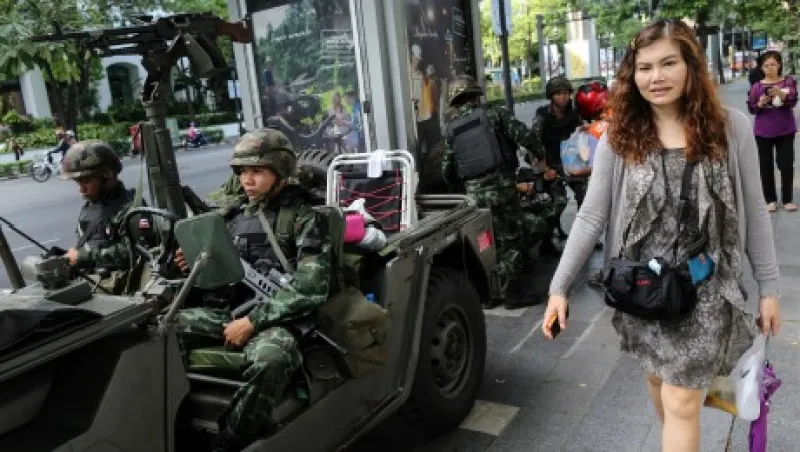
Investors in Thailand Wait for Yellow or Red Light
Thailand analysts and investors are waiting to see if the country’s May 22 coup is a signal of an economic turnaround.
Jonathan Gorvett
May 30, 2014


